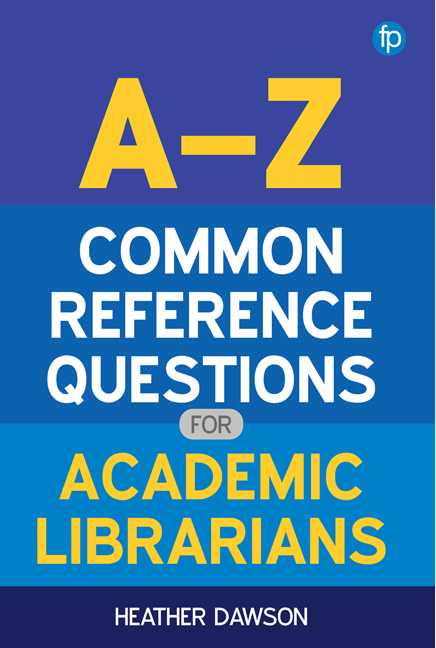Computer Science
Published online by Cambridge University Press: 19 March 2020
Summary
Typical questions
• I need to find recent academic research on algorithms.
• What is a star topology?
Starting points
• Students of computer science may need definitions of IT concepts, practical manuals on coding and academic studies on both the technical and social impact of IT. A related topic is Data Mining. Free e-learning programmes on coding can also be found using the MOOCs sub-section of Courses and Qualifications.
• It is easy to find large amounts of information on the internet, however many sites are low quality and commercially orientated. This section will direct students to academic resources which they can use for literature searching.
• As information technology is a rapidly moving field, many research reports are published in journal or working paper series and can become outdated quickly. Advise students to use these resources and check dates of publication.
Recommended resources
Key organisations
These websites are good for locating information on qualifications, courses, conferences and research news. Many also offer information on their journal publications. Some services are available for members only.
Association for Computing Machinery (ACM)
www.acm.org
World's largest computer society supporting IT professionals and researchers. Non- members can access some webinars.
BCS, The Chartered Institute for IT
www.bcs.org
Promotes the needs of the IT industry, academics, practitioners and government users.
IEEE
www.ieee.org
International professional organisation involved in promoting research into a wide range of uses of technology, including engineering and computing. Website has information about its large number of specialist research groups including those covering technical standards.
Study guides
Code.org [Basic]
US-based non-profit organisation which aims to support teachers and learners of coding and increase the participation of under-represented communities. Offers free access to short tutorials, online courses and classroom resources covering a range of programming languages. Main emphasis upon primary and secondary level.
Computing at School [Basic]
community.computingatschool.org.uk
Website supported by BCS, the Chartered Institute for IT. It provides guidance for UK teachers with free access to national curriculum guidelines, lesson plans and teaching resources.
FOLDOC [Basic]
foldoc.org
Free online dictionary of computing terms supported by Imperial College. Includes major acronyms, abbreviations and programming language terms.
Information
- Type
- Chapter
- Information
- A-Z Common Reference Questions for Academic Librarians , pp. 67 - 69Publisher: FacetPrint publication year: 2019
